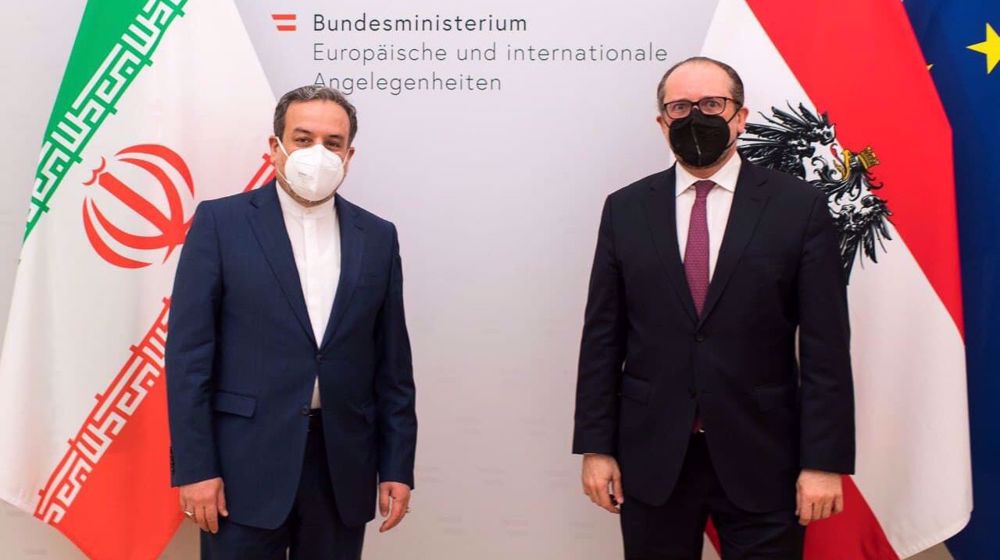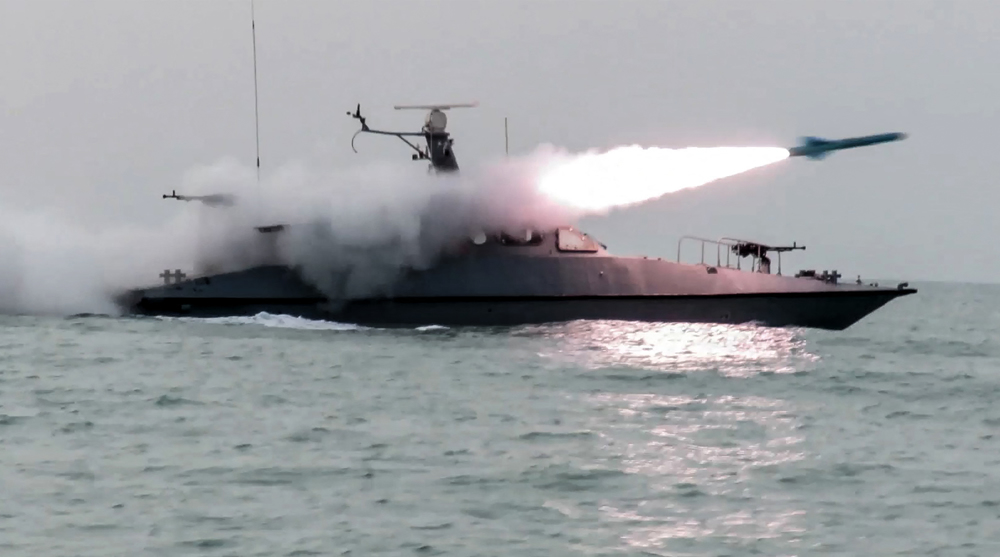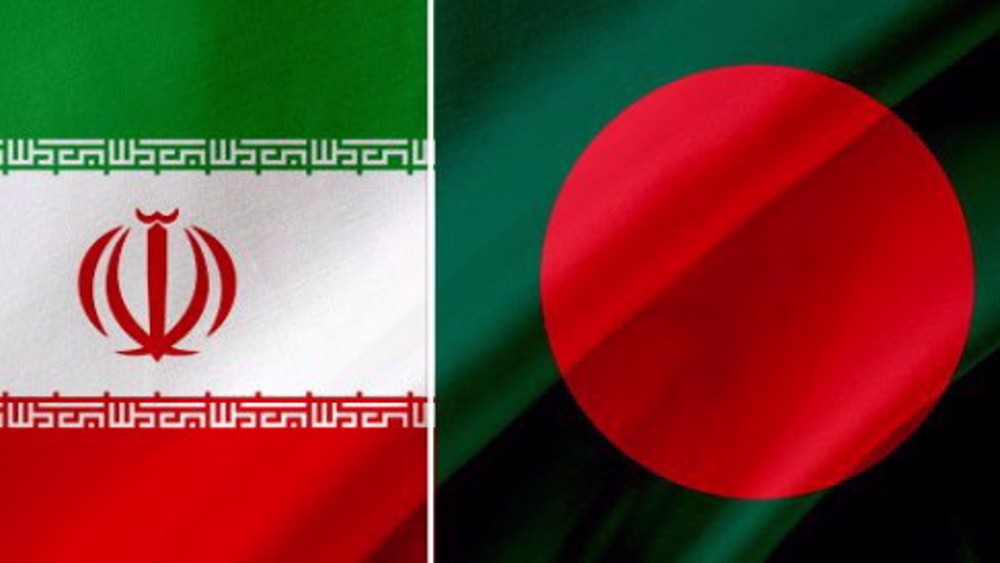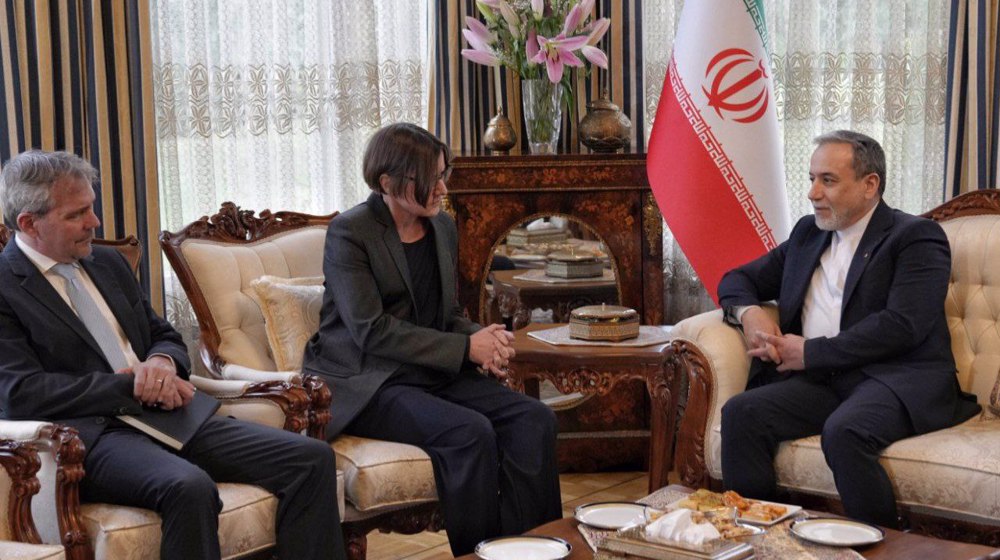Vienna ready to help facilitate talks on saving Iran deal: Austria FM
Austrian Foreign Minister Alexander Schallenberg says Vienna is ready to make all efforts to provide an appropriate atmosphere for talks aimed at preserving a landmark nuclear deal signed between Iran and major world powers in 2015.
Schallenberg made the remarks in a meeting with Iranian Deputy Foreign Minister Abbas Araqchi, who is in the Austrian capital at the head of a delegation to hold talks with representatives of the remaining parties to the nuclear deal, officially known as the Joint Comprehensive Plan of Action (JCPOA).
The top Austrian diplomat said the preservation of the JCPOA would be to the benefit of all sides.
In 2015, Vienna hosted the signing ceremony of the nuclear accord between Iran and six major world states — Russia, China, the US, France, Britain plus Germany.
Three years later, however, the US under ex-president Donald Trump pulled out of the deal and re-imposed the anti-Iran sanctions lifted by the JCPOA. Trump’s administration also targeted Iran with a set of non-nuclear sanctions as part of its so-called “maximum pressure” campaign devised to coerce the Islamic Republic into giving more concessions to the West under a “better deal” that would also cover issues unrelated to the Iranian nuclear program.
Now, the administration of new US President Joe Biden — who was vice president when the JCPOA was clinched — has acknowledged the defeat of Trump’s pressure policy and expressed a willingness to return his country to the JCPOA.
However, his administration has so far failed to undo Trump’s wrongdoings in practice, sending mixed signals on how the US would resume its contractual obligations and saying Iran should first stop the remedial steps it has been taking away from the deal under Article 36 of the JCPOA.
Tehran, however, rejects such a call as an excessive demand, arguing that the US — as the initiator of the diplomatic crisis — must first compensate its past mistake by lifting all the anti-Iran sanctions before Iran resumes its commitments.
Meanwhile, the other signatories to the JCPOA have been trying to act as the go-between and find a way out of the dispute.
In line with efforts to keep the deal alive, Iran and the P4+1 group of countries — Britain, France, Russia, and China plus Germany — held a meeting within the frame work of the JCPOA Joint Commission in Vienna on Tuesday.
A US delegation was also present in the Austrian capital, but it was not allowed to attend the talk in Vienna.
During the sessions, the participants agreed on the formation of two expert-level working groups, one of which would focus on how to get the US to lift the sanctions.
The other group will also focus on how to get the Islamic Republic back into compliance with the limits set by the JCPOA on enrichment and stockpiles of enriched uranium.
All the concerned parties to the deal reacted positively to the outcome of the talks, which will continue until Friday.
Iran asserts that the only path back for the United States to rejoin the JCPOA is full compliance and a practical and verifiable removal of all imposed, re-imposed and re-labeled sanctions.
During the Wednesday meeting, Araqchi and Schallenberg also discussed Tehran-Vienna relations and issues of common interests, expressing their determination to further strengthen cooperation in different fields.
Araqchi appreciated the efforts and hospitality of the Austrian government during the JCPOA Joint Commission session and elaborated on Tehran’s positions regarding the nuclear deal, particularly the need for US to remove of all the sanctions and the practical measures it must take to return to compliance.
US State Department spokesman Ned Price claimed Wednesday that Washington is ready to “take the steps necessary to return to compliance with the JCPOA, including by lifting sanctions that are inconsistent with the JCPOA.”
Lebanon’s parliament speaker urges pressure on Israel to stop ceasefire violations
UK government asked not to release Mandelson emails on Epstein: Report
VIDEO | Gaza Ramadan initiative
Hillary Clinton slams Trump for ‘betraying the West and NATO’
UN Staff group defends Francesca Albanese, condemns European ministers’ ‘vitriolic’ accusations
Full intelligence oversight maintained over Strait of Hormuz: IRGC Navy Commander
Sheikh Qassem: Hezbollah does not seek war, but will never surrender
Hamas slams Israel's plan to expand East al-Quds boundaries










 This makes it easy to access the Press TV website
This makes it easy to access the Press TV website